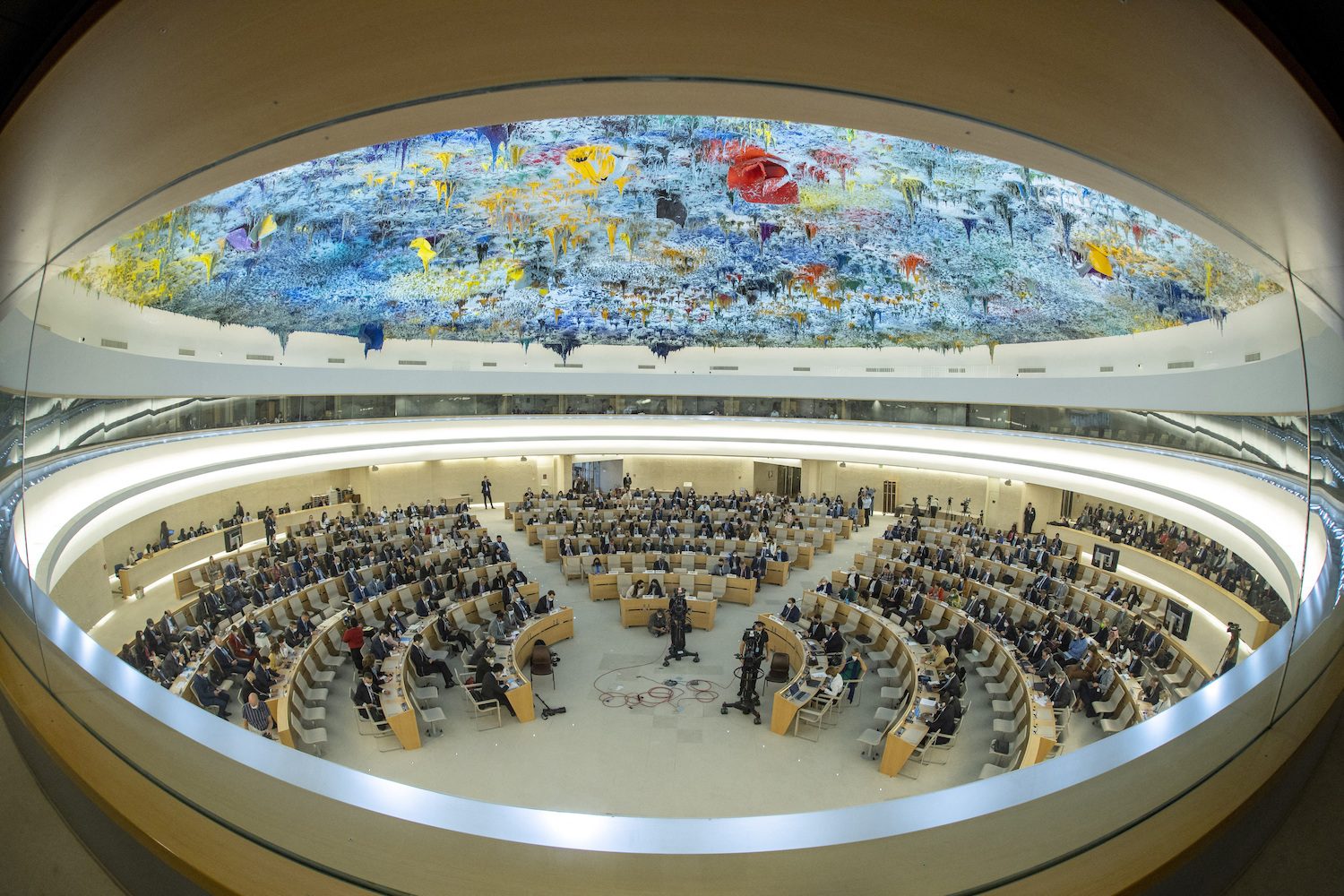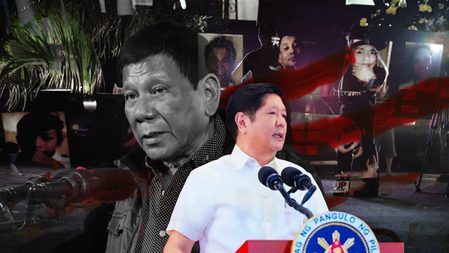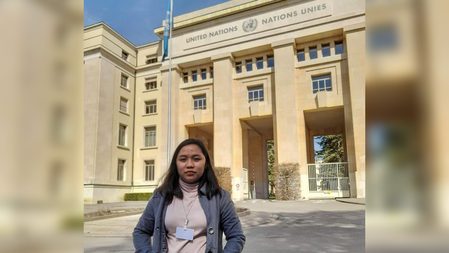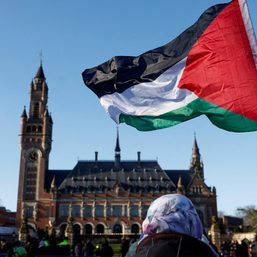SUMMARY
This is AI generated summarization, which may have errors. For context, always refer to the full article.

MANILA, Philippines – The Philippine government welcomed the majority of recommendations issued by United Nations (UN) member-states during its human rights assessment, but groups are wary these would not amount to anything.
The Philippine government accepted at least 215 of the 289 recommendations set forward during the Universal Periodic Review (UPR), including the calls to conduct investigations into human rights violations and assure the protection of human rights defenders.
Ambassador Evan Garcia, the country’s Permanent Representative to the UN in Geneva, told the UN Human Rights Council (UN HRC) on March 27 that the Philippine justice system “while certainly a work in progress, is well functioning,” and that the courts “are willing to dispense justice equally and fairly.”
Human rights advocate Rose Trajano, speaking on behalf of FORUM-ASIA, however said that “facts on the ground stand in direct contrast” to what was being said by the Marcos administration in the international arena.
“Very little has been done to credibly investigate the widespread and systematic human rights violations committed,” she said in a video statement.
At least 6,252 people were killed in police operations alone under Duterte’s drug war as of May 2022, according to government data. This number does not include victims of vigilante-style killings, which human rights groups estimate to be between 27,000 to 30,000.
Out of the thousands killed, only three had been convicted so far in relation to the drug war, including policemen involved in the killing of 17-year-old Kian delos Santos and the deaths of Carl Angelo Arnaiz and Reynaldo “Kulot” de Guzman.
The drug war killings are the subject of an investigation by International Criminal Court (ICC) Prosecutor Karim Khan. On March 27, the ICC appeals chamber rejected the Philippine government’s bid to suspend Khan’s probe while appeal proceedings are ongoing. It also allowed victims’ families to submit comments, pointing out that it is “appropriate for victims to be involved.”
But the Marcos administration has been anything but helpful to the ICC. It has resorted to echoing Duterte-era messaging, further antagonizing the international tribunal. Marcos himself has said that the government is “disengaging” with the court.
Continued impunity, violence on the ground
The Marcos administration is not only being condemned by groups for not taking steps to hold Duterte accountable over the drug war killings. It is also facing criticism over continued violence and impunity in the past 10 months.
Instead of actually introducing reforms, Human Rights Watch (HRW) senior Asia researcher Carlos Conde said the Marcos administration “hit the ground running trying to persuade” the international community that the situation in the Philippines is improving.
“The government has taken very little concrete actions to address these pressing concerns and instead, officials have resorted to bombarding the airwaves with rhetoric while dressing up a few tokenistic actions,” he said.
Drug-related killings continue under the Marcos administration. Dahas, a project by the University of the Philippines Diliman’s Third World Studies Center, monitored at least 234 victims between June 30, 2022 and March 23, 2023.
Command Memorandum Circular No.16-2016, the document that laid out Duterte’s bloody war on drugs, is still in effect, while red-tagging of human rights defenders, activists, and even journalists continues as well.
“While welcoming the change of narrative of the current administration, we remain strongly concerned by the gap between the public discourse and the reality on the ground,” Franciscans International told the UN HRC.
“More than rhetoric, we need concrete commitments and actions towards the protection of defenders and human rights in general on the ground,” Karapatan secretary-general Cristina Palabay, who spoke on behalf of global alliance of civil society organization Civicus, said.
UN council must act
Karapatan renewed its call for the UN council to open an independent investigation into the extrajudicial killings and other violations.
This is not the first time that the human rights situation in the Philippines was tackled at the UN HRC. The drug war and other state abuses under Duterte have been discussed in the council, including through various resolutions over the years.
The UN HRC, however, has failed to strongly act against the killings and other violations, much to the disappointment of various stakeholders. Instead of opening an independent investigation into the killings, the council in October 2020 adopted a resolution giving technical assistance to address the situation in the Philippines.
The “weak” action came even if then-UN human rights chief Michelle Bachelet released a report stating that local systems have, so far, failed to exact accountability for the killings under a drug war that was being carried out “without due regard for the rule of law, due process, and human rights.”
HRW’s Conde said that the council fell short in providing routes for justice for victims. By doing so, the UN HRC “has enabled the Marcos administration to evade its responsibility to ensure accountability for abuses and stop the violations.” – Rappler.com
Add a comment
How does this make you feel?














![[Just Saying] SONA 2024: Some disturbing points](https://www.rappler.com/tachyon/2024/07/TL-marcos-sona-points-july-23-2024.jpg?resize=257%2C257&crop=335px%2C0px%2C720px%2C720px)








There are no comments yet. Add your comment to start the conversation.